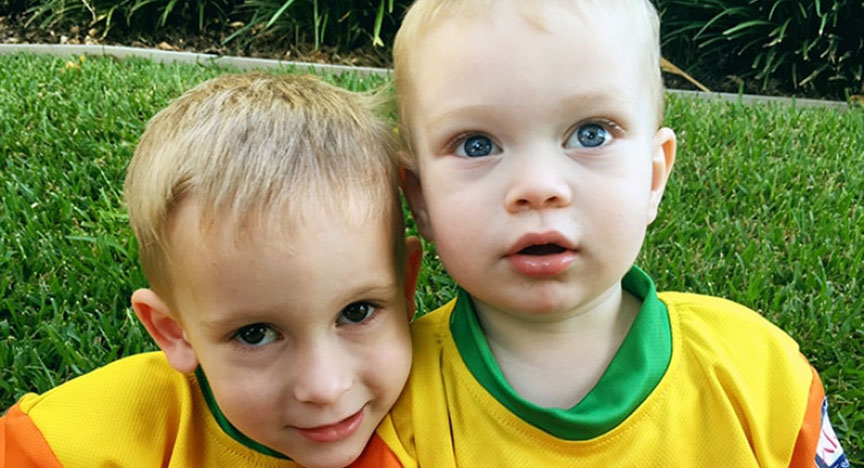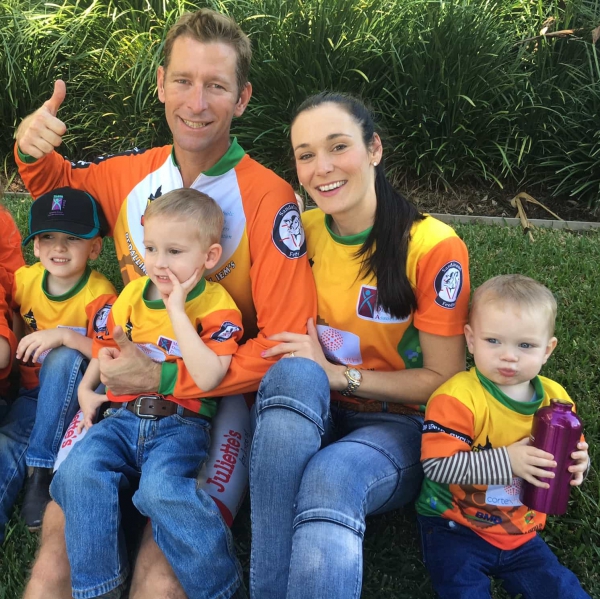
Like most brothers William, 3 , and Harry, 20 months, have a lot in common, but these two characters share a special bond that will be with them for life.
The lively pair, of Julia Creek in north Queensland were both diagnosed during the newborn screening test with a rare genetic inborn error of metabolism (IEM) disorder known as Phenylketonuria, or ‘PKU’. The condition means the boys can’t process protein and must eat a low-protein diet supported with a medical supplement.
While PKU is treatable, it is not curable. William and Harry have a life-long challenge ahead of them to stay fit and healthy to help manage their condition.
Every meal, outing and social event requires careful planning. They have to avoid meats, dairy products, eggs, nuts and seeds, legumes and most grains. They can eat most fruits and vegetables but they must be carefully weighed and measured. To ensure they are getting enough in their diet, the boys also eat special medical foods such as medical bread, pasta, biscuits and crackers which their mum, Sarah, makes from scratch.
Without appropriate treatment and care, people with PKU can suffer from brain damage, seizures, liver failure. In some cases, the effects can be fatal.
Needless to say, the journey for the Acton family, which also includes dad Philip, and William and Harry’s older brother Thomas, 5, has been an emotional and challenging one to this point. However they choose to focus on the positives and take each day as it comes.
“We are blessed to have three healthy boys and are grateful every day for the newborn screening that detected the PKU, and for the treatment that William and Harry receive,” Sarah says.
“The boys are still very young, however, William is old enough to say he does not eat particular things – unfortunately he is also able to say that he does not want his medical supplement (which makes up 80 per cent of the boy’s diet).
“We spend time with him on a daily basis to ensure he has his medical supplement three times a day. Each week we also have to send blood samples to the newborn screen lab for analysis to ensure their protein intake remains at a safe level.”
To show his sons that anything is possible, Philip, a cattleman, who is more at home on a horse than a bike, rode 1,500 kilometres from Townsville to Brisbane in July 2016 to raise awareness of metabolic dietary disorders.
The ride finished at the Queensland Children’s Hospital where William and Harry attend the PKU clinic, the only one in Queensland.
About 25 babies are diagnosed with an IEM disorder every year in Australia.
For more information about advice and support, contact the Metabolic Dietary Disorders Association (MDAA) on 1800 288 460 or visit www.mdda.org.au
